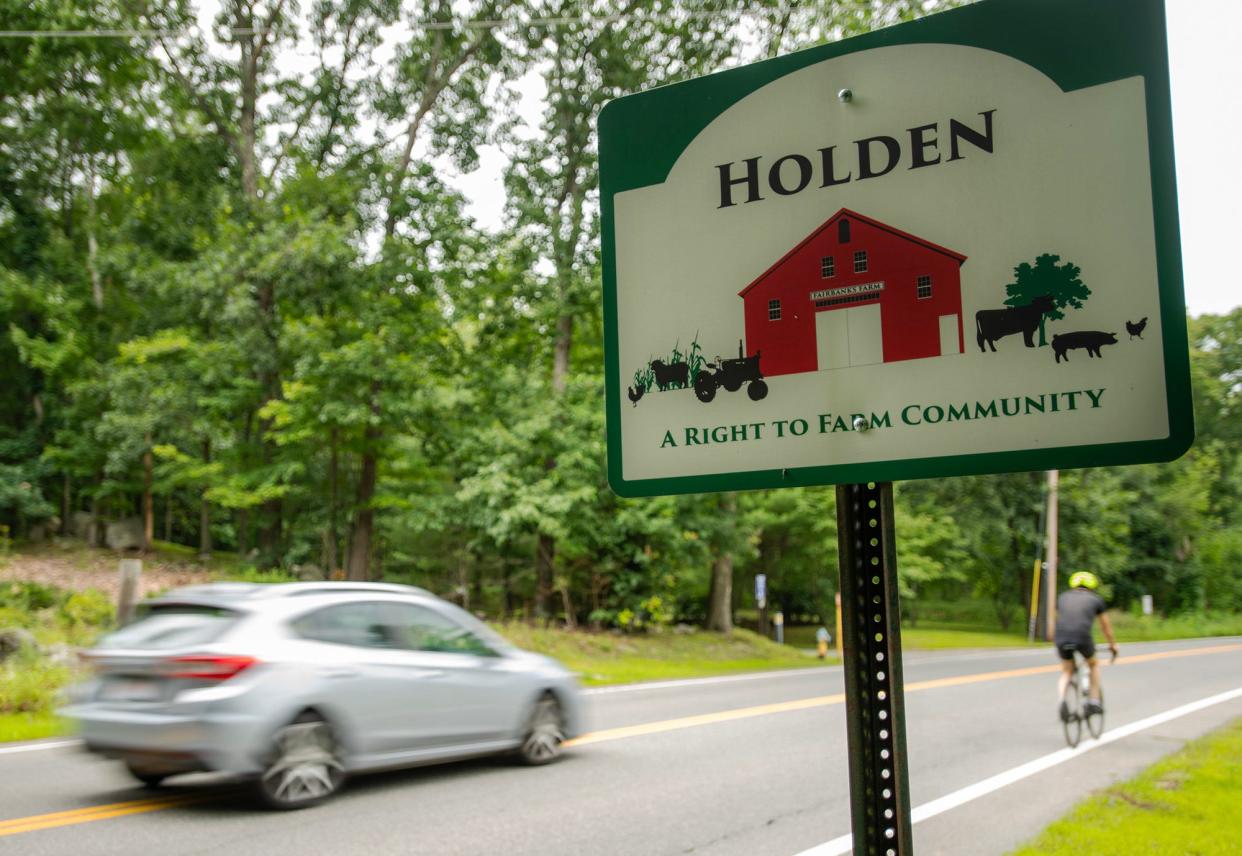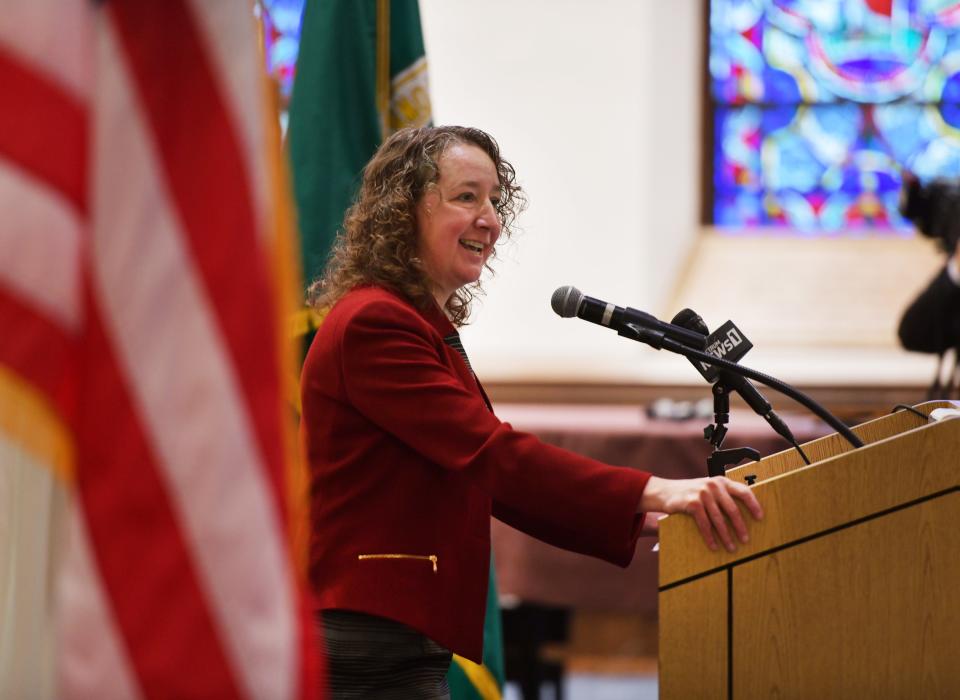Holden faces lawsuit for refusing to comply with MBTA zoning law

HOLDEN - The Central Massachusetts Housing Alliance, a Holden resident and a Westborough woman facing housing insecurity are suing the Town of Holden in the Supreme Judicial Court over the town's decision not to comply with a Massachusetts Bay Transportation Authority zoning law, their attorneys said Thursday.
Holden has refused to comply with a zoning law that mandates communities with access to public transit allow for more multifamily housing. Holden is one of 177 municipalities subject to the zoning law.
In February, Holden Town Manager Peter Lukes said, “The Town of Holden wants to zone the way the Town of Holden wants to zone,” and said that local officials felt the zoning law did not fit the character of the town.
Lukes said at the time that Holden is attractive for its neighborhoods lined with single-family homes.
Holden can lose access to state grants, including those through the MassWorks Infrastructure Program, and some funding for its housing authority as a result of noncompliance, but Lukes characterized the zoning law as "voluntary."
Gov. Maura Healey and Attorney General Andrea Campbell have made it clear they view the zoning law as mandatory. Campbell issued an advisory on compliance.
The lawsuit announced Thursday seeks to establish that complying with the zoning change is mandatory. The complaint was filed by Lawyers for Civil Rights and Brown Rudnick LLP, according to a news release from Lawyers for Civil Rights.
In the news release, Lawyers for Civil Rights cite the state's affordable housing crisis and say Holden's noncompliance could encourage other municipalities to not comply as well.
"Holden’s insistence on this point must be corrected to avoid a domino effect of noncompliance from other MBTA Communities," the news release read.
Nobody from the Town of Holden was immediately available for comment Thursday.

Central Massachusetts Housing Alliance CEO Leah Bradley said the state's housing crisis has increased the number of households who are experiencing homelessness. She added while new arrivals to Massachusetts have some impact on the homeless population, agencies are seeing many local families who are no longer able to pay their rent, or who spend at least half of their income on rent.
"Our motivation is really to ensure that all of the communities are helping us to solve this housing crisis," Bradley said.
Advocation for affordable housing
Bradley added that the housing alliance has been advocating for the construction of more affordable housing in Worcester County towns because people tend to be homeless for shorter periods of time if they stay in their community of origin, or near that community, as they have access to support systems.
Jacob Love of Lawyers for Civil Rights said "exclusionary zoning," policies that limit multifamily housing production, is one of the major causes of the state's housing crisis, as the demand for housing would exceed supply and result in inflated prices.
"The whole theory behind the law is, let's change this every-town-for-itself approach to multifamily zoning," Love said.
Bradley and Love said the issue is also one of racial equity. They said renters and cost-burdened renters are disproportionately people of color and more housing choice would help these communities.
On Holden's assertion that the policy is not mandatory, Love said the attorneys believe the case is very simple.
"The law plainly says that all 177 MBTA communities shall have a zoning district where multifamily housing can be built as of right," Love said. "The law uses the imperative command 'shall.' In our view, that does not leave any room for discretion from towns."
Love said Holden's insistence that there is discretion to not follow the law, when the law was intended to tamp down on zoning discretion in towns, "defies logic."
The zoning law's first compliance deadline expired Jan. 31 with seven towns still not in compliance.
Currently, only Holden and Berkley are noncompliant, according to the news release.
The lawsuit lists the Town of Holden, Lukes and the town Board of Selectmen as defendants.
Along with the Central Massachusetts Housing Alliance, Westborough resident Lydiana Morales and Holden resident Jennifer Lish are listed as plaintiffs.
According to court documents, Morales is a multiracial Hispanic woman who is unable to work due to disabilities. She was priced out of the Worcester apartment where she lived with her minor daughter and they moved to a Westborough emergency shelter. She is facing problems finding housing she can afford, according to the complaint.
Lish is a Holden resident who wants the town to comply with the law and fears the town would lose out on the benefits of the policy, according to the complaint.
Under a law former Gov. Charlie Baker signed in January 2021, every MBTA community must have one zoning district near transit that allows multifamily housing by right. An MBTA community is defined as a municipality with MBTA service, or one abutting a community with MBTA service.
The law is intended to help the state achieve its housing and climate goals by encouraging housing near transit. It does not mandate housing.
This article originally appeared on Telegram & Gazette: Central Mass. Housing Alliance sues Town of Holden over zoning law

